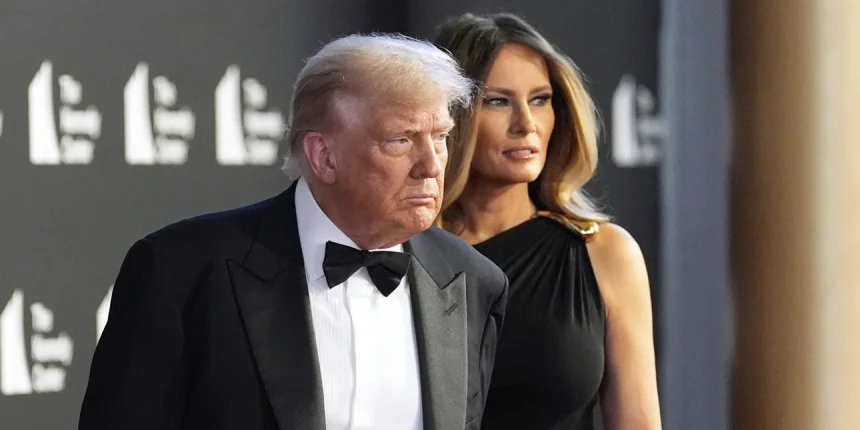Donald Trump was greeted with loud boos and jeers by a section of the audience at the premiere of the iconic musical “Les Miserables” at the John F. Kennedy Center for the Performing Arts in Washington. The presence of the former US president – accompanied by Melania Trump – provoked strong reactions, with some viewers openly expressing their displeasure, others remaining coldly indifferent, and fewer applauding.
The atmosphere was visibly charged from the moment he arrived at the cultural institution, with videos circulating on social media capturing the boos that could be clearly heard as he entered the auditorium. Trump’s choice to watch Les Misérables – a play that deals with social rebellion and the struggle against oppression – drew understandable mockery from many social media users, who considered his presence “the height of hypocrisy.”
He himself did not seem particularly bothered. When he was informed that some actors had chosen not to participate in the performance in protest of his presence, his reaction was cynically indifferent: “I don’t even care,” he reportedly declared.
The cultural clash in the spotlight
The outcry was not an isolated incident, but rather highlights the deep cultural and social polarization that runs through American society – especially in the areas of culture, the arts and the representation of diverse voices. Trump, at the start of his second term, had assumed the presidency of the Kennedy Center and canceled scheduled performances that he called “woke,” replacing board members with his own conservative allies. His decisions were interpreted by many as a clear attack on inclusivity and freedom of artistic expression.
The public, therefore, did not simply express a political preference. It was reacting to the degradation of culture into a tool of ideological control and the silencing of voices that defend diversity, human rights, and the ongoing need for social justice.
A political message against the backdrop of art
The premiere of Les Misérables was destined to become, without intention, a scene of social criticism. The empty seats in the square and the frosty reception in the box office were not just a sign of disagreement. They were a message. Trump’s disapproval of a work that celebrates resistance against oppression is a strong cultural commentary on his leadership and the values he embodies – values that for many fall short of the solidarity, equality and inclusion that modern society needs.











